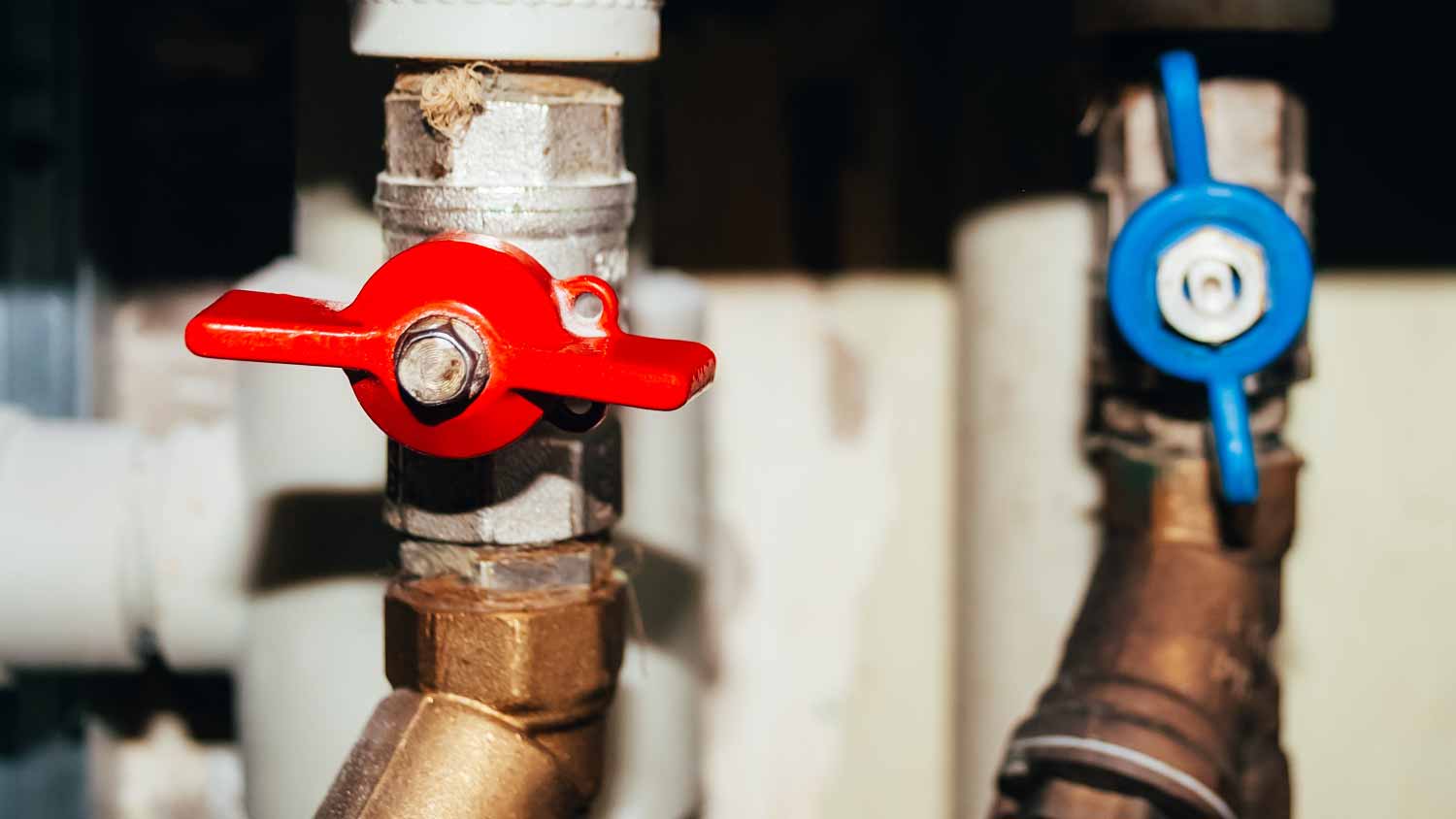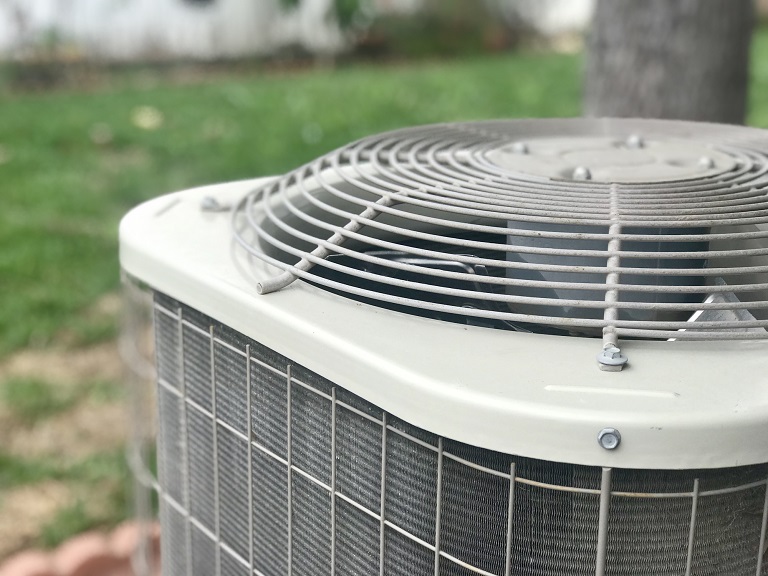
Furnace cleaning is an essential annual chore to keep your home safe. Find out common furnace cleaning costs by type and size of furnace with this guide.
Stay out of hot water after a shut-off


Air conditioning and plumbing systems are not connected to one another, so a problem with one does not mean there will be a problem with the other.
Water heaters are the most common shared component between plumbing and HVAC systems and the most likely to be affected if the water gets shut off.
Shut your water off before extensive travel, and turn the water heater off, too, if the tank looks empty.
Getting the water shut off is no picnic. Plumbing emergencies or utility problems really know how to ruin a good day. But it’s important to keep a level head after a water shut-off and be careful turning it back on so that none of that nasty bacteria in the pipes affects your drinking water. But does shutting off water in your home affect your air conditioning, too?
Fortunately, residential HVAC systems are separate from home plumbing systems. A problem with one doesn't mean it'll cross beams and affect the other. Central air systems aren't connected to your home's drain pipes at all. Whatever happens with your plumbing is largely separate from the AC, barring a flood or other extreme conditions creating electrical or mechanical problems. Plumbing issues like clogs, leaky pipes, or a faucet that won't shut off will not affect your air conditioning at all.
Though they aren’t directly connected, HVAC and plumbing systems share two elements that can cause problems if the water flow is disrupted: condensation lines and water heaters.

Have you ever walked down a city block with apartment buildings full of window ACs and gotten annoyed at those droplets that hit your head? That's condensation, which will drip off of air conditioners. The condensation line is a bigger and more complex version of the drips that come from these window AC units.
The condensation line directs the flow of condensation from the HVAC system to the home's exterior. With most units, the condensation drips into a pan underneath your interior unit and flows into a pipe in the exterior wall so that it drips outside. However, in some setups, condensation flows into the sewer line.
According to the International Code Council, which sets the international mechanical codes for residential construction, it is illegal as of 2021 to connect condensation lines to plumbing drains. This type of setup is only seen in older homes, and even then, it's pretty rare. Most homeowners don’t have to lose sleep over this since there’s a high likelihood your HVAC system’s condensation line drains outside.
But if you turn the water off and then back on, there’s a small chance that the accumulated condensation will go somewhere expensively inconvenient. You’ll want to speak to a local AC installer about your options for redirecting this condensation or how you can prepare for situations where the water gets shut off. This is especially true if you have an older home that’s no longer up to code.
Water heaters are connected to the heating element of your HVAC system. While separate from the air conditioning aspect, they are still part of the same system in most residential HVAC setups. When the water gets turned off because of plumbing emergencies or you have extensive travel planned, you don't need to shut off the water heater simultaneously. So long as your heat is functional and the temperature isn't set very high, you shouldn't have any problems.
However, if the water gets turned off during colder weather and you have the heat cranked up, this can put pressure on the water heater's storage tank. Consistently high temperatures can pressurize the tank and cause it to leak. Age, loose fixtures, and unrelated damage to the tank can also cause the water heater to leak and create a messy and expensive problem.
We highly recommend inspecting your water heater annually for signs of degradation. If you spot any potential warning signs, consider contacting a local plumber.
If you lose pressure on the cold water side of the water heater, you should definitely shut off the water heater. This is an incredibly rare occurrence, but one where you should turn it off to prevent further damage.
The water heater also saves water in its tank so that you can always take that spa-worthy long, hot shower when you need to. But if this tank looks empty and you're about to take that three-week dream vacation, this is also the time to shut the water heater off after voluntarily turning your water off. This will prevent pressurized ruptures until it's time for normal water flow to resume.
Always on time, very knowledgeable about his craft,cleans up after themselves, reasonable pricing. Would highly recommend them to paint my house again.
This is a small family owned company that will give you excellent service.
A very good company to work with: professional, reasonably priced, and willing to go above and beyond to satisfy the customer. We had rotted wood and new aluminum roof trim installed, and the result is perfect and done on time. I definitely recommend them and will certainly use them for...
Incredible job! I found a leak in my air conditioning and noticed mold growing around the area. Upon realizing this, I immediately called this company and we agreed on a same-day appointment. They took samples for testing and within hours, I received the results with detailed observations. I...
I have had Kennihan do plumbing, heating, air conditioning, hot water heater replacement, etc etc etc. They are like having a whole team in your family! Excellent from the professional service people to the office team to the owners!
The service was excellent! Norwin's trap caught the dangerous bob cat in short order. I am very thankful!
Brandon Burnette did such a great job. I'm so happy I had him as my worker today. Very nice and friendly young man. 10 star in my book.
We had Brandon from DeMarks come out and power wash our siding. The house is 26 years old and had never been washed before. I can not say enough about how hard he worked to get every inch of the house sparkling clean. Not only did he wash the siding, but the soffit, fascia, and gutters as...
We had LHR install a new roof and gutter system. While they were not the cheapest, they were considered the most reliable and fetish for using only high-value products that would last for many years. Additionally, they were highly professional and never tried to push their services or any...
The crew showed up on time and finished the home theater installation as promised. The guy in charge of the team made sure it was done correctly, right down to the smallest detail. Highly recommended!
From average costs to expert advice, get all the answers you need to get your job done.

Furnace cleaning is an essential annual chore to keep your home safe. Find out common furnace cleaning costs by type and size of furnace with this guide.

Whole-house fans can help reduce your electric bills by providing ventilation and cool, fresh air. Use this whole house fan cost guide to price out the project.

The average cost of an electric furnace ranges between $1,700 and $7,000, depending on the size, ductwork, and complexity.

Discover the average air handler replacement cost, including labor and materials, plus expert tips to help you budget and save on your HVAC upgrade.

With so many types of furnaces out there, how do you know which one is best for you? Explore our guide to the five main types and get your home warmed up.

Learning how to secure a window AC unit will avoid personal injury and damage to your home. It will also protect against theft and break-ins.